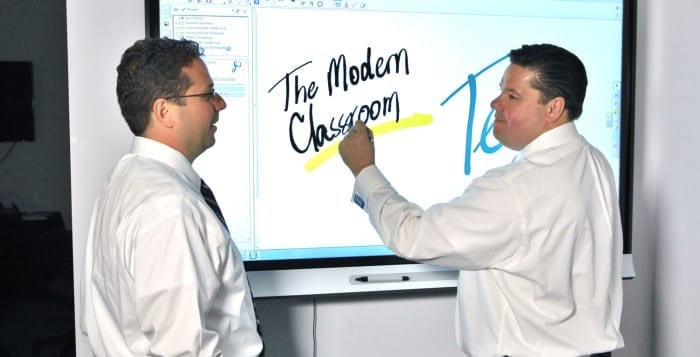There’s been a lot of hubbub about the 21st century classroom, where interactive whiteboards replace chalk, and pencils and pens are subbed out for iPads and Chromebooks. Even our own governor has incentivized such reforms at our schools.
But let’s push pause and ask: Is all this technology helping or hurting? And what benefits are we missing out on in the real world beyond the bright screens?
This week, a Huntington Station company, Teq, announced it had partnered with Canadian company SMART Technologies — yes, the creators of the famous SMART Board that is a staple of today’s classrooms — to be the sole distributor of Smart products for grades K to 12 in New York. That’s a big deal and we applaud Teq’s success. The educational tech company, already projecting sales of $50 million this year, anticipates the partnership will boost its revenues 20 percent.
That’s not just chump change, and it’s a good deal for Long Island’s economy.
Yet how much of our new technologies are really needed for learning and how much are we just advancing for the sake of advancing? It feels like a lot of the new software and hardware is needed only to keep today’s student boredom at bay, as many kids are so used to having tech products in the home that they will not concentrate on paper.
A culture of distraction is one of the greatest setbacks of today’s overly technological society. We understand that it benefits our students to be familiar with today’s gadgets, so they will be prepared for tomorrow’s success. But it also benefits children to know what it feels like to hold a real book in their hands, to solve a difficult math problem using a pencil and loose-leaf notebook, to be able to tell time without a digital display, to play outside instead of staring at their phones.
Today’s kids are being handed iPads not long after retiring baby bottles.
Steve Jobs once told a New York Times reporter that he limited his own children’s tech time at home. Instead of rushing to live in a completely digital world, our educators, parents and political leaders should place importance on carving out some time for a little reality — some quiet time and disconnect to facilitate thinking and creativity.





